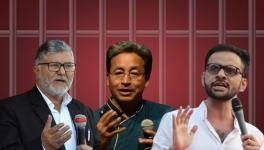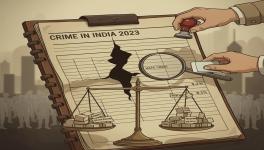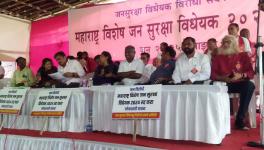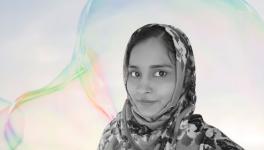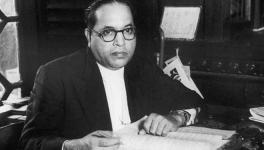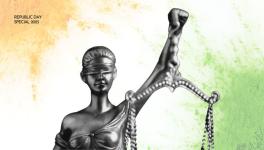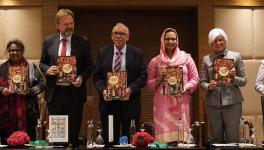In My Own Voice: Freedom Then, Freedom Now
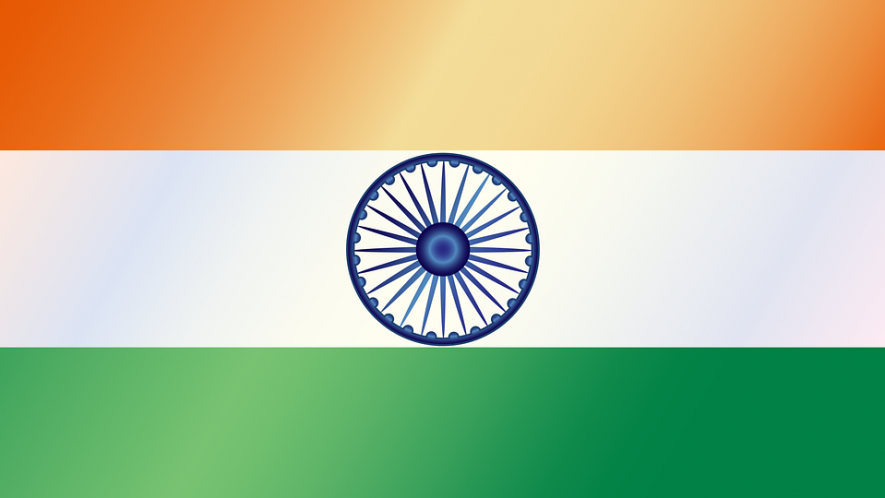
As 15th August approaches, my mind turns to all the freedom fighters I have met over the years. Since 1997 beloved reader, I have been recording oral testimonies of those who contributed to our freedom struggle across India, Malaysia, Singapore, Thailand and Myanmar. I have no way of describing that indefinable, special light in their eyes as they recalled their days of youth, struggling for the freedom of India.
I met Savitri Ramakishen, Subhadra Khosla, Vijay Chauhan and Sarla Sharma who had raised the flag inside the Lahore Women’s jail on 9th August 1942.
Savitri Ramakishen recalls, ‘we made a circle of interlocking arms and kept singing all night:
‘Jinne zulm bedard kar lein
Sau vari kar le tu!
Jinna bahadur leader saada;
Phar phar jaila bhar le tu…’
(How much heartless tyranny you can inflict
Hundreds of times you can do it!
Our own leader is so brave;
Grab us, grab us, fill the prisons …)
We sang this all night with slogans of ‘Hind Azaad Karavange’ (We will make India free!).’
Her eyes were shining; then she recounted how they put one charpoy upon another and Memobai – who was thin and wiry – hoisted the flag.
Others who were present were Pushpa Gujral, Satyavati with her daughter Nirmal and an Englishwoman, Freda Houlston Bedi – married to the Indian freedom fighter, Baba Pyare Lal Bedi. Those were times when to fight British imperialism everyone got together and a woman of British origin was accepted as a freedom fighter, putting up a resistance.
The other memorable encounter I had was with Janaky Thevar a woman of Tamilian descent and based in Kuala Lumpur, Malaysia.
She had heard Netaji Subhas Chandra Bose’s speech on 6 September 1943, in a padang (park) in Kuala Lumpur. Inspired she took off her diamond ear-rings and gave it to him with a salute.
Netaji with his fiery oratory – tum mujhe khoon do, mein tumhe azaadi doonga (You give me blood, I will give you freedom) was exhorting people to volunteer for the Indian National Army and the Rani of Jhansi Regiment – one of the first all-woman military regiment of the world.
Janaky’s step–mother, would have none of it. She warned her that she could lose an arm or leg and that no one would marry her. It was Lakshmi Swaminathan later, Lakshmi Sahgal, who came for tea and persuaded their father to sign the forms, enabling both her sister, Papathy and her to join.
Janaky Thevar was the second to command the Rani of Jhansi Regiment in Rangoon, after Lakshmi was sent to Maymyo in Upper Burma – where there was a nursing station for wounded soldiers.
Janaky recalled when the British bombed the Red Cross hospital in Rangoon she and her colleagues carried out the charred bodies and survivors. She gave me her war diary that had a riveting account about the 21 day long trek through the forests of Burma with Netaji Subhas Chandra Bose escorting the Ranis back home as they were in retreat. They lost two of their Ranis – Stella and Josephine on the way.
This is the amazing stuff of our own history, the story of spell-binding heroism and sacrifice; contrary to the myth, all Indian women were not exactly in purdah.
In Prai, Malaysia, I met Kannusamy and asked him why he had joined the freedom struggle when he had never set foot in India? He lost his temper, ‘it’s a funny question to ask an Indian! Once an Indian, always an Indian.’ he fumed. ‘It was a great chance to do something for one’s country.’
Most of the INA and the Ranis in South-east Asia, never got any recognition or pension as freedom fighters of India. They lived overseas and even hid their past as the British reoccupied Malaya (now Singapore and Malaysia) and punished those who had ‘collaborated’ with the Japanese.
In Myanmar I met Chinnaya – blind with poverty and age who sang the INA national anthem, ‘sukh chain ki barkha barse …’ He was not a citizen of any country and existed on a Foreigners’ Registration Certificate that had to be renewed annually.
Perumal in Rangoon was also without citizenship and was eager that the plight of the stateless freedom fighters of India be known to the government of India.
The freedom struggle was a time when ordinary people did extraordinary things bound together by a quest for freedom; that went unknown and unrecognised.
Today is 14 August and it is the birth anniversary of the legendary journalist, Kuldip Nayar who passed away last year. He had been imprisoned during the Emergency and he was also my hero and role-model. He and his brother in law, Rajindar Sachar, were always present at every meeting, standing up for freedom, secularism and social justice, exhorting us - the younger generation – to carry on the struggle. Once when Nayar was turning 93 and I was interviewing him on Doordarshan I asked him, ‘you are the youngest person I know in mind and spirit; how do you do it?’ He replied with a poignant look in his eyes, ‘I have seen Partition’.
Kuldip Nayar at the age of 20 crossed the border with just Rs.150 in his pocket and witnessed the blood bath, making him a tireless crusader for peace, secularism and justice. While he lit candles at the Wagah-Attari border for Indo-Pak friendship – a tradition that is still continuing today – he knew the true candle resides in the hearts of people, do not extinguish that one. Do not hurt one another!
Today my beloved country stands at a cross-roads. The people of Kashmir are locked up and locked out, we do not know what they are experiencing but as a lover of my country and true freedom I know we need to evolve a consensual resolution to Kashmir by hearing their voices and their spirit. No amount of militarisation will work in the long run. To keep Kashmir, embrace the Kashmiri! Lift the curfew, allow the press inside Kashmir, for the Kashmiri will not accept a siege of his homeland.
As the Unlawful Activities Prevention Act has been amended, any individual can be labelled a terrorist and be asked to prove his own innocence. This has dangerous ramifications for our personal and civil liberties, gentle reader. Freedom of expression and indeed dissent, freedom of the press is the cornerstone of any democracy.
Just as the freedom fighters had fought for freedom for a just society and envisaged India as a land for all religions and diverse people, I too had hoped we would embrace our minorities, dalits and women as one and work towards a more compassionate and inclusive society. A society where we could articulate our views without fear, express dissent or wander around the country, freely – without a Section 144. But then, the struggle for true freedom – freedom from fear, inequality and injustice – is a continuing one.
Perhaps for Independence Day I evoke for my readers Gandhi’s favourite hymn, as it seems to be ringing in my ears today, plaintively:
‘Ishwar Allah, Tero naam, sabko sanmati de bhagwan’.(Ram and Allah are both your names, give everyone a good mind, dear God).
There is a question that breaks like the tenacity of a mole from beneath the surface of our assumptions: is this true freedom? The mole though blind instinctively moves towards the light. Like everyone else I want peace and a space where I can debate and discuss ideas freely:
‘Where the mind is without fear
And the head is held high
Where the world has not broken into fragments by narrow domestic walls
Where words come out from the depth of truth
Where tireless striving stretches its arms towards perfection
Where the clear stream of reason has not lost its way
Into the dreary desert sand of dead habit
Where the mind is led forward by thee
Into ever-widening thought and action,
Into that heaven of freedom, my Father, let my country awake.’
Rabindranath Tagore’s words ring in my mind today. He writes, ‘Our social ideals create the human world, but when our mind is diverted from them to greed of power then in that state of intoxication we live in a world of abnormality, where our strength is not health and our liberty is not freedom.’
Despite any political party having a ‘bahumat’ (majority) I want the values of the freedom fighters and their vision of a secular and a just India to reign, for that is the original idea of India.
Gentle reader, have a thoughtful Independence day!
Sagari Chhabra is an award-winning author and film director. The views are personal.
Get the latest reports & analysis with people's perspective on Protests, movements & deep analytical videos, discussions of the current affairs in your Telegram app. Subscribe to NewsClick's Telegram channel & get Real-Time updates on stories, as they get published on our website.









